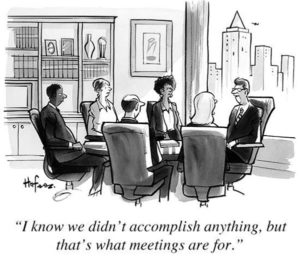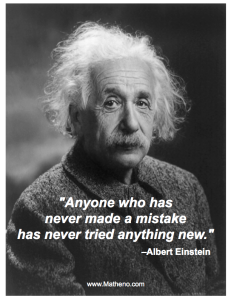Sometimes a competitor is just too entrenched, too strong, too well equipped to directly face in battle. At least that is the conventional wisdom. Yet, there are constant examples of new entrants into a niche that grow, prosper and sometimes even become dominant.
So when do we know which course to take? Quietly abandon a niche? Refuse to engage? Or charge in full speed?
In one industry I know well, the dominant player with 22% market share was acquired by one of the largest companies in the technology world. Everyone, including those connected with the newly acquired dominant player, wondered what changes would affect  their company and their personal lives and fortunes. Well, even though that acquisition is still playing itself out on the field of battle, it appears quite clear that the new parent has directed its new subsidiary to abandon the lower end of the market and focus upon the larger sales, corporate customers, and major brands.
their company and their personal lives and fortunes. Well, even though that acquisition is still playing itself out on the field of battle, it appears quite clear that the new parent has directed its new subsidiary to abandon the lower end of the market and focus upon the larger sales, corporate customers, and major brands.
And if that new strategy is proved to be true, the five–hundred–pound gorilla in that niche just moved out of the way of many of its smaller competitors, leaving a market that will surely see a scramble of new competition in the near future.
[Email readers, continue here…] What if you had abandoned that market, reallocated your resources, and focused instead upon other non–competitive geographical or industry segments? There’s an example of avoiding the encounter and losing the lead position when an opportunity to compete surfaces unexpectedly.
But doesn’t it take seemingly unlimited resources to compete against the gorilla in a niche? The answer is found in defining the niche itself. Has your competitor left a geographical area virtually untouched? Forgotten about selected vertical markets within the niche? Been skewered for slow customer service? Each of these discoveries would provide an opportunity to compete and perhaps win, defend and build from a distant base to fight the larger battle.
One more thing, absolutely common to technology companies: generations of technology do not transition easily. Leading players in one generation often do not transition well into the next, as they carry the burden of a large existing user base with demands for support, feature–functionality and attention that drain the resources of even larger companies. I’ve seen these waves of technology first hand in one niche, counting six such waves during the past 35 years, and watching new entrants arrive during each transition to attract customers with new products using new tools, sometimes to grow larger over time than the last generation’s dominant player.
So, how do we answer the question? Battle or avoid? We look for the under-served niches, avoid the direct encounter until dominating at least one of those niches, and use the profits and reputation from that small victory to take on ever–larger niches once dominated by the gorilla. We’ll call that clever avoidance for the sake of a much fairer but later battle.

 information that we can use to make changes, decrease costs, or better manage assets like inventory or cash – or people.
information that we can use to make changes, decrease costs, or better manage assets like inventory or cash – or people.
 that there is something wrong with the enterprise when it takes constant meetings to get the job done?
that there is something wrong with the enterprise when it takes constant meetings to get the job done? commission plan is so complex that even the people who should be most excited cannot understand or calculate the winning numbers?
commission plan is so complex that even the people who should be most excited cannot understand or calculate the winning numbers? the instruction was necessary or worth the effort in the first place. He worded it a bit differently, as in the headline to this insight. Sure gets your attention.
the instruction was necessary or worth the effort in the first place. He worded it a bit differently, as in the headline to this insight. Sure gets your attention. person’s relationship with others in the organization more often than failure to perform the specific task for which the person was hired. Especially in companies with unusually stifling cultures allowing few errors or deviations from the handbook or rules, some new employees just cannot adapt.
person’s relationship with others in the organization more often than failure to perform the specific task for which the person was hired. Especially in companies with unusually stifling cultures allowing few errors or deviations from the handbook or rules, some new employees just cannot adapt. reporting an accidental safety error (such as flying into restricted airspace) within ten days is granted immunity from FAA prosecution, as long as the mistake was not an intentional breaking of the law. Even NTSB understands that mistakes are learning experiences as it insulates accidental infractions from prosecution in order to learn and solve problems communally.
reporting an accidental safety error (such as flying into restricted airspace) within ten days is granted immunity from FAA prosecution, as long as the mistake was not an intentional breaking of the law. Even NTSB understands that mistakes are learning experiences as it insulates accidental infractions from prosecution in order to learn and solve problems communally. lithography. But if I knew then what I know now, I would have spent time working with my employees in each of the subsequent and more mechanical processes such as printing press management, record press management and shipping control in order to better learn my own business and hear first–hand suggestions from the line.
lithography. But if I knew then what I know now, I would have spent time working with my employees in each of the subsequent and more mechanical processes such as printing press management, record press management and shipping control in order to better learn my own business and hear first–hand suggestions from the line. from the past, real or imagined. And it is human nature for the person now free of the company to attempt to explain why the departure – in the most flattering personal terms possible.
from the past, real or imagined. And it is human nature for the person now free of the company to attempt to explain why the departure – in the most flattering personal terms possible.